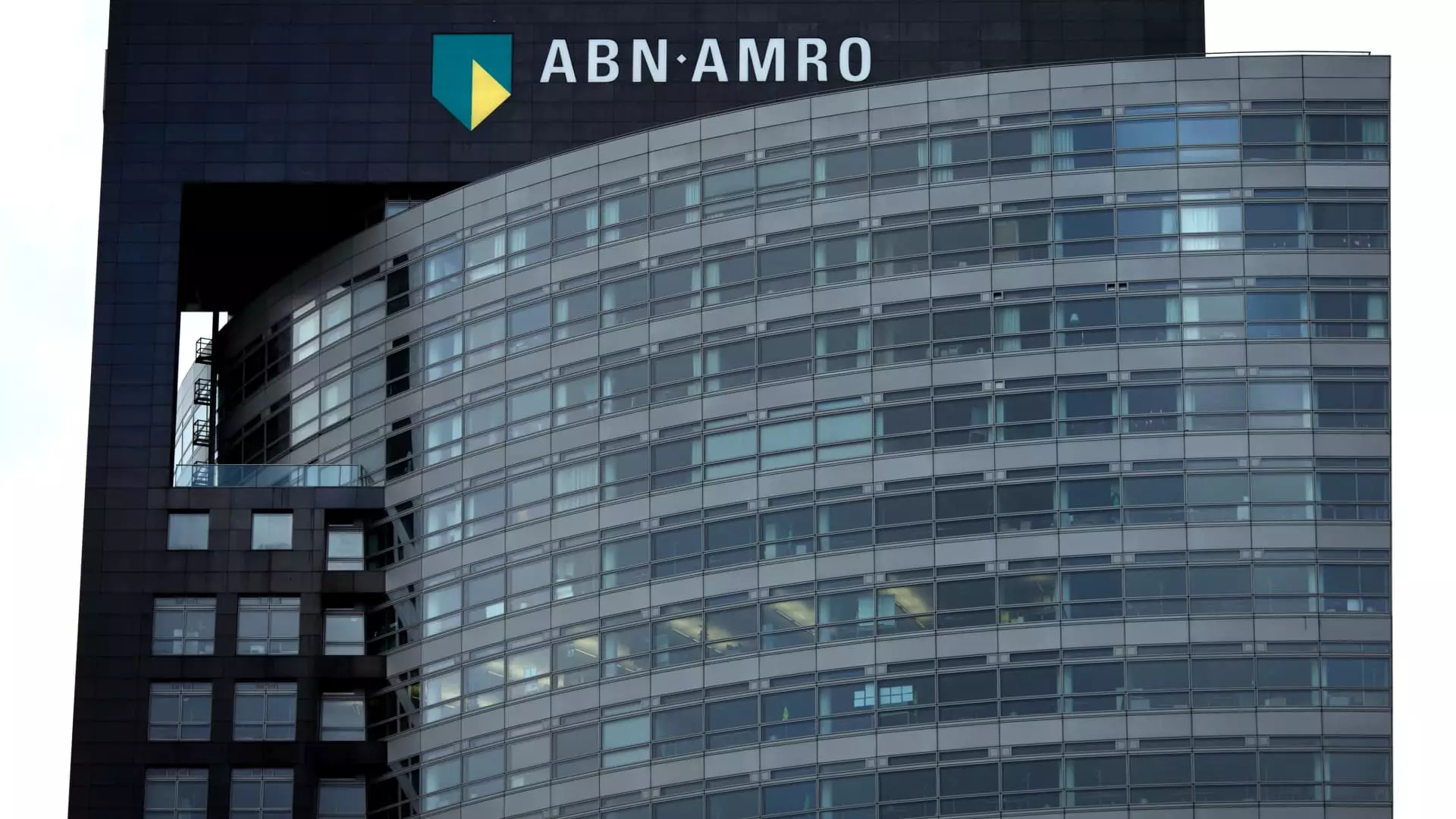In a significant shift, the Dutch government announced plans to trim its stake in ABN Amro, one of the Netherlands’ largest banking institutions, from 40.5% to 30%. This decision was formalized through a structured trading plan, which is slated to be executed by Barclays Bank Ireland. The implications of this move are noteworthy, as it marks the ongoing efforts of the Dutch authorities to reduce their involvement in the banking sector, a remnant of the financial rescue operations undertaken during the 2008 financial crisis.
Upon the announcement of the share sell-off, ABN Amro’s stock experienced a minor downturn, reflecting investor sentiment about the government’s diminishing role. Initial trading showed a dip of 1.2%, stabilizing at a loss of 0.6% shortly thereafter. As of the most recent closing, shares stood at just 15.83 euros, significantly below the 31.49 euros needed for the government to recover its total expenditures on the bank. These figures raise questions about the current valuation of the bank and the unrealistic expectations for a price recovery in the near future, as acknowledged by Finance Minister Eelco Heinen.
The roots of state ownership in ABN Amro trace back to the financial upheaval of 2008, a pivotal moment when the government intervened to stabilize the banking system. Post-crisis privatization in 2015 saw the government beginning a gradual reduction of its stake, striving to achieve a balance between fiscal responsibility and market dynamics. Minister Heinen emphasized that the government’s initial intent was not profit-oriented, but rather to safeguard financial stability, a commitment that continues to shape their exit strategy.
This divestiture reflects a broader trend in Europe, where various governments are re-evaluating their positions in bank ownership. As financial stability strengthens, many countries are leveraging rising share prices to divest from institutions that received state support during turbulent economic times. The recent maneuvers by both U.K. and German administrations regarding NatWest and Commerzbank highlight a collective movement towards minimizing state influence in banking.
The landscape of European banking remains dynamic, with speculation surrounding potential acquisitions like the previously rumored interest from French bank BNP Paribas in ABN Amro. These discussions illustrate a complex web of market interests and the potential for cross-border banking consolidation in an evolving financial ecosystem. As the Dutch government continues to sell off its shares, the future trajectory of ABN Amro will not only depend on its financial performance but also on broader market conditions and regulatory landscapes.
The Dutch government’s strategic reduction in its stake in ABN Amro symbolizes a calculated step toward normalization post-crisis while reflecting broader trends in the European banking sector. As both governments and institutions navigate this landscape, the focus will be on achieving sustainable growth and re-establishing confidence among investors.

